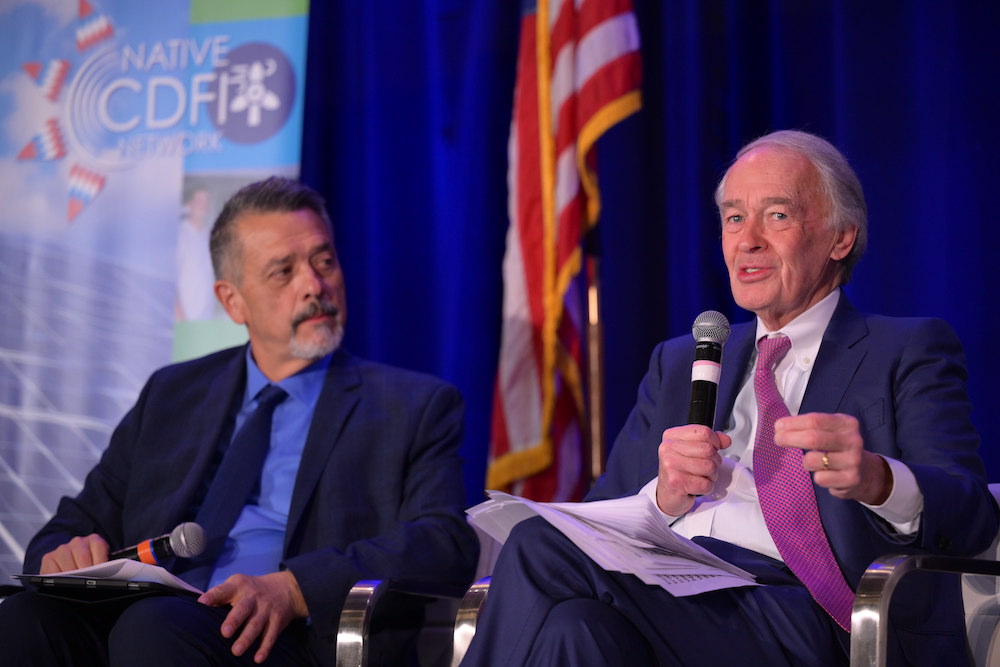
- Details
- By Brian Edwards
- Energy | Environment
WASHINGTON — A $20 billion federal investment in clean energy projects could unlock up to $250 billion in total funding for disadvantaged communities, including tribal nations, Sen. Edward J. Markey told Native CDFI leaders at their annual policy summit Thursday.
“That's not a game changer. That's a whole new sport that we're creating in the clean energy sector across the country, and you are the players who are on the field,” Markey said, referring to the broader Inflation Reduction Act's potential to catalyze $3 trillion in public and private spending.
The Massachusetts Democrat, speaking at the Native CDFI Network's fifth annual Policy and Advocacy Summit, emphasized the critical role Native CDFIs will play in deploying Greenhouse Gas Reduction Fund (GGRF) investments. However, after learning few organizations had received allocations yet, he urged quick action to protect the program from political opposition.
“We gotta get that done. We gotta get the funding out into your hands,” Markey said. “What I would urge you to all do is to work rapidly, to develop the partnerships that you're going to need in order to effectively put these programs into place.”
The GGRF’s green bank program, which evolved from Markey's National Climate Bank concept, requires 60% of funding to flow to historically disadvantaged communities, including tribes. This mandate aims to address past inequities in federal program access, particularly for Native communities.
Markey said that unlike Franklin Roosevelt's original New Deal, which largely overlooked communities of color, this “new deal” of climate investment specifically prioritizes historically excluded communities.
Early tribal projects are already demonstrating success, Markey said. In Cherokee, North Carolina, the Sequoyah Fund invested in a solar array for a fish hatchery, powering bug catchers above fish ponds while cutting both food costs and energy usage by half.
“When we build together — tribes and unions and community leaders, research institutions, businesses, nonprofits and the government itself — we build strong and lasting institutions. And that's why the green New Deal is not a simple carbon calculator. It's a call for good, paying jobs, justice for all, a liveable future, all while we reduce dangerous emissions,” Markey told the audience of about 250.
Native CDFI Network CEO Pete Upton, who moderated a Q&A with Markey, highlighted the program's significance for Indian Country. He emphasized the need to work quickly, while also ensuring that NCN and Native CDFIs “get it right” when it comes to proper implementation and compliance in deploying the federal funds correctly.
“Time is of the essence,” Markey added, telling the audience, “You are the answer to a prayer which communities across the country have had for generations. The funding is there, please do everything you can to do this fast and right. I’m really looking forward to all the great stories you help create in communities across the nation.”
